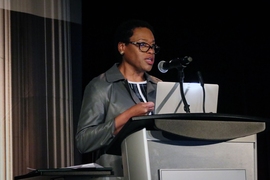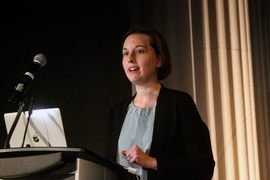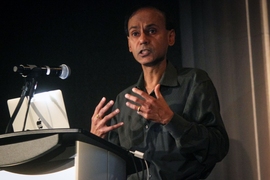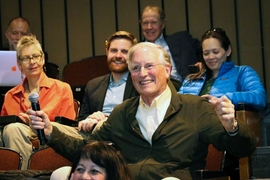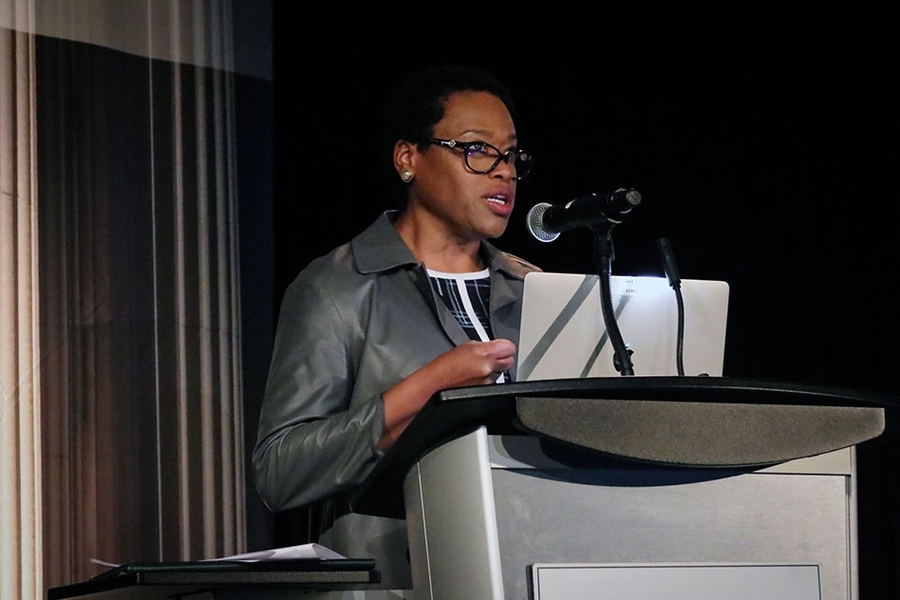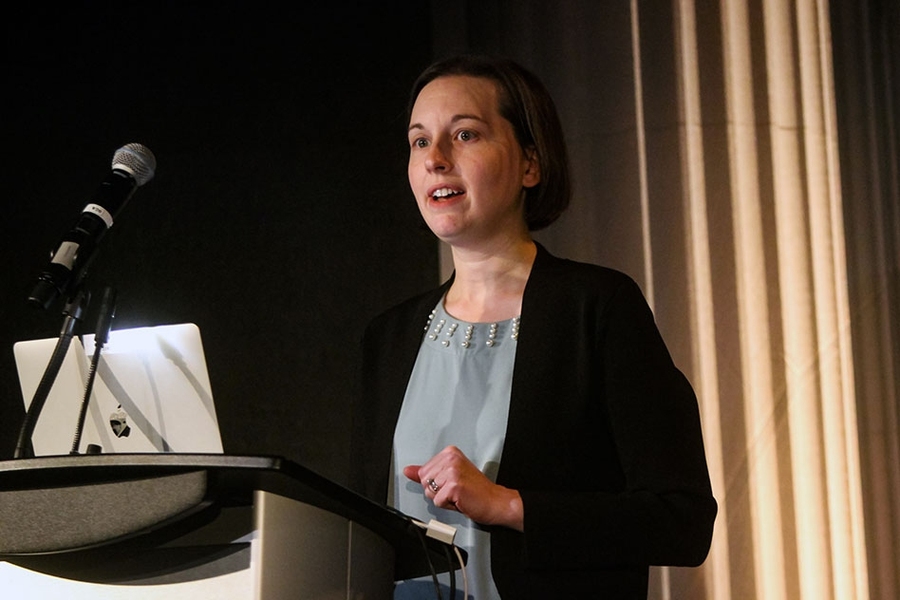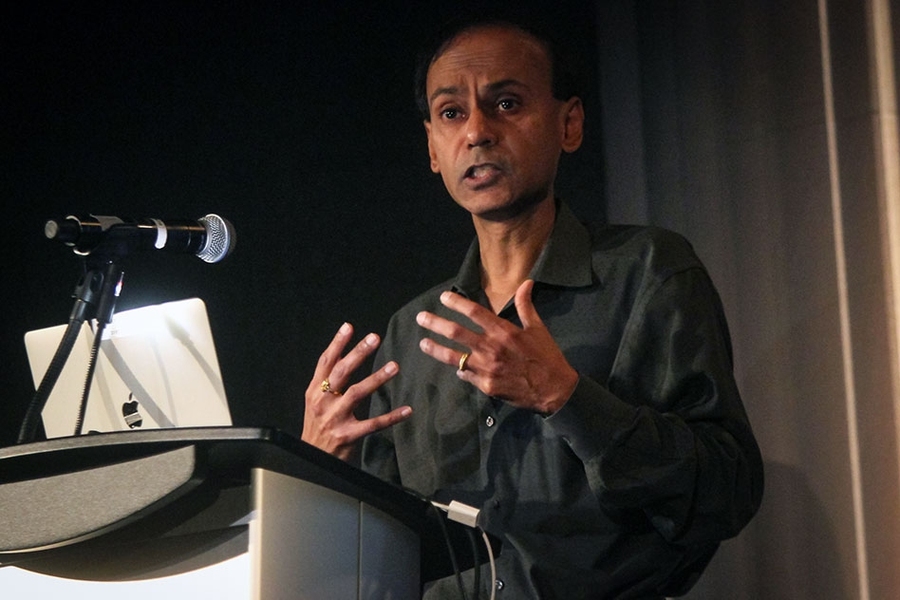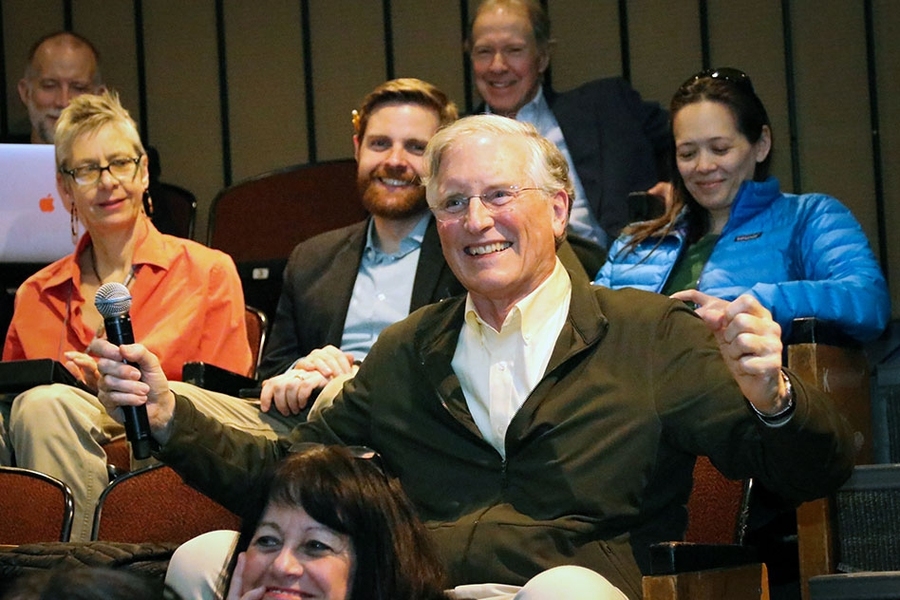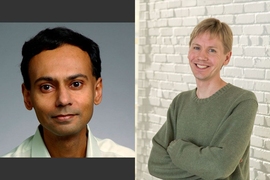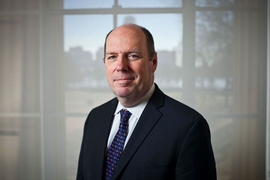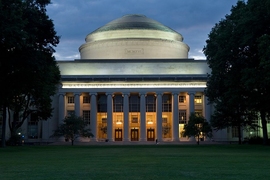Community forums held last week for the MIT Stephen A. Schwarzman College of Computing working groups addressed how new ideas for its curriculum, research, infrastructure, and operations can best serve the community and society.
In February, MIT charged five working groups with generating ideas for the structure and operation of the new college. The groups are: Academic Degrees, Social Implications and Responsibilities of Computing, Organizational Structure, Faculty Appointments, and Computing Infrastructure. The groups each have two co-chairs and anywhere from about a dozen to more than 20 other members, representing many departments, labs, and centers across the Institute. The groups meet regularly, and will soon submit a report to MIT administration that outlines many potential ideas for their respective assignments.
To keep the community updated, three forums for all five working groups were held Wednesday, April 17, and Thursday, April 18. Co-chairs and members for each group delivered brief presentations on their group’s goals, information-gathering processes, current ideas, lessons learned, challenges, and questions left unanswered. Then, they opened the floor to questions and comments from the audience, which comprised dozens of students, faculty, and staff from across MIT.
In Wednesday morning’s forum, held in the Kresge Small Auditorium, Social Implications and Responsibilities of Computing co-chair Julie Shah shared a sentiment echoed by all working group presenters: The new college presents an opportunity to rethink how computer science is taught and researched at MIT and beyond.
“There is a sense we have a unique opportunity here in designing something across the educational curriculum, and also thinking about how we engage external parties — producers of technologies, consumers, and regulators,” said Shah, an associate professor of aeronautics and astronautics. “And what we do here can potentially be a model that lifts all of us that are working in the space across the country, and farther, together.”
All-inclusive computing
While the forums addressed a broad range of topics, common threads included: bringing all of MIT’s disciplines — including the humanities and social sciences — into the fold, lowering various barriers for computing, injecting ethics into research and coursework, and providing adequate computing resources for all.
In her presentation, Social Implications and Responsibilities co-chair Melissa Nobles said her group is considering new curricula for the 21st century that loop in ethical, social, and policy analyses. Their research shows current coursework isn’t necessarily optimal in that regard. She noted a need for investments of time and money to design new curricula.
“Certain classes do offer some discussion of ethics, but we think not nearly as robust … and certainly not as widespread as it will need to be,” said Nobles, who is the Kenan Sahin Dean and professor of political science in the School of Humanities, Arts, and Social Sciences. “We want students to think about their own particular role in [ethics] as creators of technologies … but also recognizing that we live within a larger economic, political, and social context. … I think the general idea is that it’s [about] individual behavior [and] the consequences of what we do.”
So far, a challenge for Academic Degrees, said co-chair Srini Devadas in the same forum, has been introducing computing to all MIT departments, especially the humanities and social sciences. The group, for instance, has looked into making MIT’s computer science minor more flexible for a greater diversity of students, and discussed possibilities for various computing graduate certificates. “We want to teach ground-breaking concepts, but I think it’s going to be a challenge [to serve] the entirety of the community of people interested in being in the computation core area or using it in their major discipline,” Devadas said. “This has to be as far away from a silo as we can possibly make it.”
In a similar vein, in Wednesday afternoon’s forum, also held in Kresge’s Small Auditorium, Organizational Structure co-chair Asu Ozdaglar said her group’s key goals right now are: ensuring the college nurtures interdisciplinary research, promoting computing across the MIT curriculum, and thoroughly integrating social sciences and humanities in with computing.
The group is also discussing the particularly challenging split affiliations in the Department of Electrical Engineering and Computer Science (EECS). “We have a spectrum of research, where it’s difficult to say where electrical engineering ends and computer science starts,” said Ozdaglar, the School of Engineering Distinguished Professor of Engineering and head of EECS. “We’re trying to figure out what design option [works best].”
In his presentation, Faculty Appointments co-chair Eran Ben-Joseph, head of the Department of Urban Studies and Planning, said one of the group’s guiding principles is attracting diverse faculty to create “an interdisciplinary hub to bring together unique faculty [and attracting] faculty that are different, and doing things that are nonconventional.”
One potential idea is hiring faculty in “clusters” across, say, science, engineering, and humanities that would teach and research a certain preselected topic that spans different disciplines. The idea is to “find a set of people who work collectively across boundaries and make them a group, and not just individuals working alone,” said group member Isaac Chuang, a professor of electrical engineering and a professor of physics.
Thursday morning’s forum, held on the sixth floor of the Samberg Center, saw Computing Infrastructure discuss best practices in hosting servers, storing and sharing tons of data, and cloud computing, among other factors. So far, the group has found broad support for creating a centralized network that provides “infinite” computing resources to everyone on campus. “[That] lowers the barrier of entry to places not necessarily involved in computing … and people that don’t particularly have access” to computing, said group co-chair Benoit Forget, an associate professor of nuclear science and engineering.
A major challenge, on the other hand, has been in setting up a system to ensure open-access data while navigating privacy, access, and licensing. In fact, a few audience members from different areas of MIT — including from the MIT Sloan School of Management, the Comparative Media Studies/Writing program, and the McGovern Institute for Brain Research at MIT — voiced concerns about the expenses and restrictions in accessing certain datasets for research. Currently, the working group is considering options for an Institute-wide data licensing and privacy framework that can address those issues.
Remaining open and dynamic
In addressing what will be in the working group reports, Shah drove home the point that the groups won’t propose specific recommendations, but instead will detail many different ideas to choose from and modify.
“Early in this process, it’s important for us to … think openly and understand the pros and cons of different approaches, so we can design a system that works well across all of MIT,” she said. Once groups submit reports, she added, there will be further discussions with the community: “This is not the end of input from you as a community — it’s the beginning.”
One notable question came from an audience member in Wednesday afternoon’s forum: After so much work, what if you get it wrong? The present co-chairs agreed that, while they hope to get many things right, there will always be room for improvement. Especially because the field of computer science so rapidly changes, the working groups must remain adaptable to fluctuations in academics and research, said Nelson Repenning, co-chair of Organizational Structure.
“Even if we do get it right now, the world’s going to change pretty quickly, and we are going to have to update [the structure and organization],” said Repenning, the associate dean of leadership and special projects and the Distinguished Professor of System Dynamics and Organization Studies at the MIT Sloan School of Management. “An element of dynamism to this is absolutely essential.”
